|
"Ruslan i Lyudmila" is a poem by Alexander Pushkin(普希金), published in 1820. It is written as an epic fairy tale consisting of a dedication, six "songs", and an epilogue. It tells the story of the abduction of Ludmila, the daughter of Prince Vladimir of Kiev by an evil wizard and the attempt by the brave knight Ruslan to find and rescue her.
"Ruslan i Lyudmila" is also an opera in five acts composed by Mikhail Glinka(格林卡) between 1837 and 1842, based on the 1820 poem by Alexander Pushkin. |
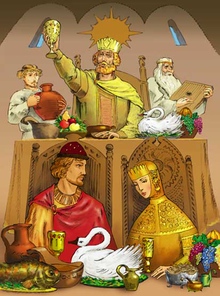
The wedding feast
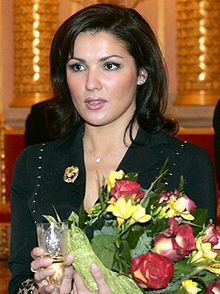
Anna Netrebko 2005 (Lyudmila 1995)
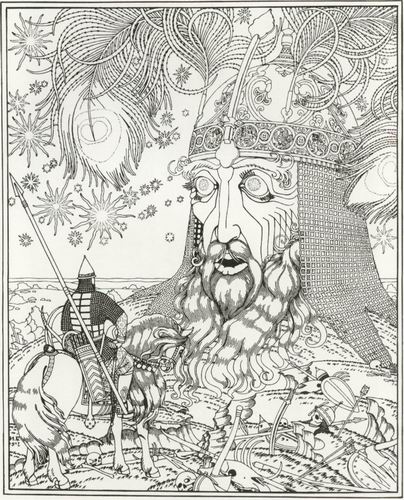
Ruslan Meeting the Talking Head, by Ivan Bilibin.
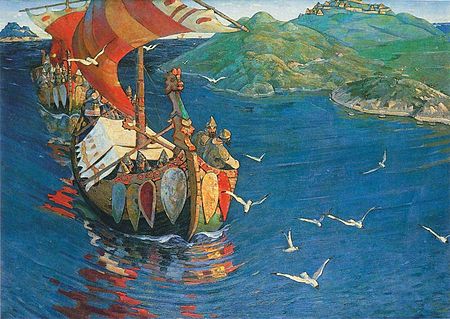
Guests from Overseas, Nicholas Roerich (1899).
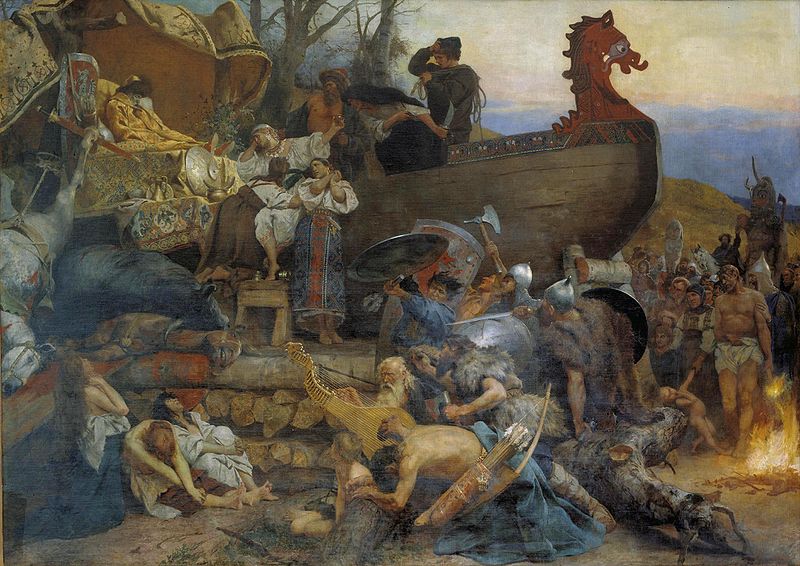
Ship burial of a Rus chieftain as described by the Arab traveler Ahmad ibn Fadlan who visited Kievan Rus in the 10th century.
- by Henryk Siemiradzki (1883)
|
Kievan Rus 基輔羅斯公國 the Normanist theory The German historian Gerhardt Friedrich Müller (1705–1783), who worked in the Russian Academy of Sciences, declared at the beginning of an important speech in 1749, that the "glorious Scandinavians conquered all the Russian lands with their victorious arms". This statement caused much anger in in the hearts of his Russian audience, and earned him much animosity during his professional career in Russia. anti-Normanist doctrine Starting with Lomonosov (1711–1765), scholars from Eastern Europe have criticised the idea of Norse invaders. |